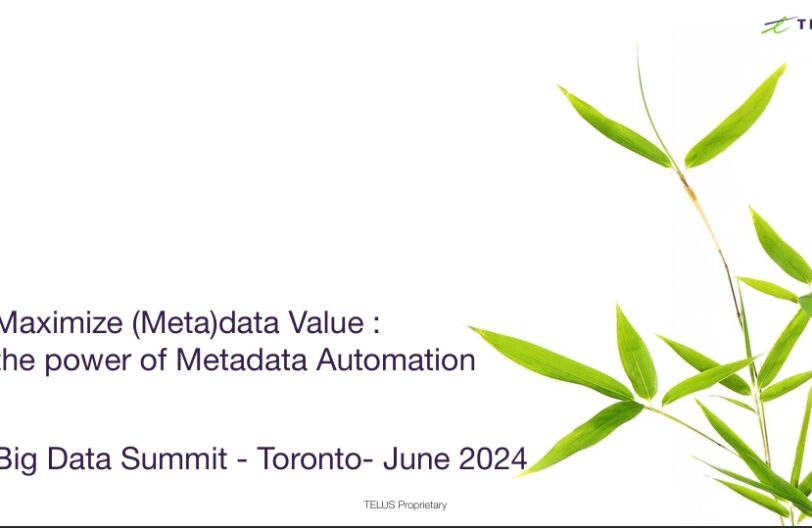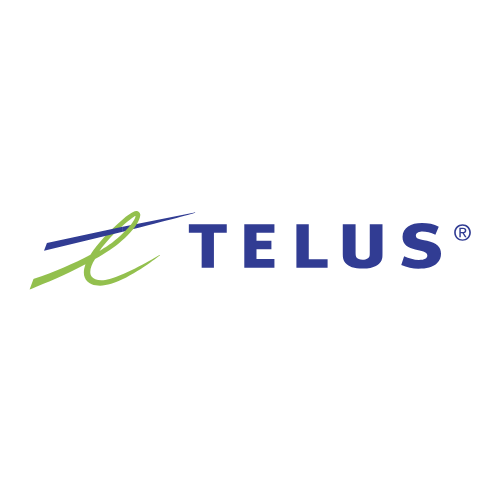Executive Summary
In today’s data-driven business landscape, organizations are under increasing pressure to extract meaningful insights from their growing troves of information. However, many companies struggle to effectively consolidate and analyze data from disparate sources, leading to delayed decision-making and a lack of a single source of truth.
To address this challenge, Diponkar Paul shared his experiences in implementing a self-serve data platform at OMERS, which empowers a wider range of users to access and manipulate data. This approach is rooted in the principles of data mesh – a decentralized, domain-driven architecture that enables federated data ownership and governance.
Key Takeaways
- The Importance of Data Platforms: Data platforms are crucial for consolidating data and enabling better decision-making, but centralized data management approaches can lead to bottlenecks and disconnects between data teams and business units.
- Embracing Self-Serve Capabilities: Enabling BI developers and other non-technical users to build their own data pipelines can accelerate time-to-insight and foster a more collaborative, data-driven culture.
- Overcoming Implementation Challenges: Ensuring data security, governance, and quality through robust processes, fostering collaboration between teams, and establishing standardized development practices are critical for successful self-serve data platform implementation.
- Unlocking the Benefits: Self-serve data platforms can unlock increased agility, better decision-making, enhanced collaboration, and optimized resources, empowering organizations to become more data-driven and responsive to changing business needs.
- Adapting to Emerging Technologies: The rise of facilitated coding, low-code/no-code environments, and tools like ChatGPT are enabling the growth of citizen developers, requiring organizations to stay adaptable and continuously learn to leverage these advancements.
By embracing the power of self-serve data platforms, organizations can position themselves for long-term success in the data-driven economy. The experiences shared in this session provide a valuable roadmap for leaders looking to embark on their transformative journey.
The Limitations of Centralized Data Management
Traditionally, many organizations have relied on a centralized data management approach, where a dedicated team of data engineers and analysts are responsible for consolidating, transforming, and distributing data to the broader business. While this model can provide a level of control and consistency, it often falls short in meeting the rapidly evolving needs of modern, data-driven organizations.
As the speaker from the pension fund company highlighted, the centralized approach can lead to several key challenges:
Bottlenecks and Delays
In a centralized data management structure, all data-related requests and projects must funnel through the dedicated data team. This can result in significant bottlenecks and delays, as the team struggles to keep up with the growing demand for insights from various business units.
Disconnect Between Data and Business
The data team responsible for managing the centralized platform often lacks deep domain expertise in the specific needs and pain points of individual departments. This disconnect can result in insights that fail to fully address the requirements of the business, leading to frustration and a lack of trust in the data.
Siloed Data and Multiple Versions of Truth
With data residing in various systems and managed by a central team, it can be challenging to maintain a single, consistent view of the truth. This can lead to the proliferation of siloed data sets and conflicting reports, undermining the credibility of the organization’s decision-making.
Lack of Agility and Innovation
The rigid, centralized structure of traditional data management approaches can hinder an organization’s ability to adapt to rapidly changing market conditions and emerging business needs. This lack of agility can stifle innovation and limit the organization’s competitive edge.
To overcome these limitations and empower their teams with faster access to insights, the pension fund company sought to implement a fundamentally different approach to data management – one that embraced the principles of data mesh and self-serve data platforms.
Embracing Data Mesh and Self-Serve Data Platforms
To address the limitations of their centralized data management approach, the pension fund company decided to adopt the principles of data mesh – a decentralized, domain-driven architecture for data management.
At the heart of this strategy was the implementation of a self-serve data platform, which empowered the organization’s BI developers to take on a more active role in data engineering.
Empowering BI Developers as Self-Serve Data Engineers
By providing the BI developers with the necessary tools, training, and governance frameworks, the company enabled them to build their own data pipelines and extract insights for their respective business units. This shift allowed the BI team to accelerate time-to-insight and foster a more collaborative, data-driven culture.
Importantly, this approach also freed up the central data engineering team to focus on more strategic initiatives, rather than being bogged down by ad-hoc reporting requests from various departments.
Embracing the Principles of Data Mesh
The data mesh architecture emphasizes federated data ownership and governance, where individual business domains are responsible for managing and maintaining their own data assets. This decentralized model helps to address the challenges of siloed data and multiple versions of the truth, as each domain becomes the authoritative source for their specific data.
Under this framework, the pension fund company established clear data ownership and governance structures, ensuring that the various business units had the autonomy to build and maintain their own data pipelines, while adhering to overarching data standards and security protocols.
Implementing Robust Governance and Security Measures
To mitigate the risks associated with opening up the data platform to a wider audience, the pension fund company implemented a range of governance and security measures, including:
- Code review processes: Ensuring that the self-serve data pipelines developed by the BI team adhered to established coding standards and best practices.
- Version control: Implementing a robust version control system to track changes and maintain data lineage.
- Data masking: Applying data masking techniques to sensitive information, such as personally identifiable data, to protect against unauthorized access.
By addressing these critical considerations, the organization was able to strike a balance between empowering self-serve capabilities and maintaining the integrity and security of their data assets.
The adoption of this self-serve data platform, underpinned by the principles of data mesh, enabled the pension fund company to unlock a range of benefits, including increased agility, better decision-making, and enhanced collaboration across the organization.
Conclusion: Unlocking the Transformative Power of Self-Serve Data Platforms
In an era of rapid digital transformation, the ability to quickly extract insights from data can make the difference between market leadership and obsolescence. By embracing the power of self-serve data platforms, organizations can empower their teams, accelerate decision-making, and unlock new avenues for innovation and growth.
The experiences shared by the pension fund company in this whitepaper serve as a valuable roadmap for other organizations looking to embark on their own self-serve data platform journey. By addressing the key considerations outlined in this guide – from governance and security to collaboration and continuous learning – leaders can position their companies for long-term success in the data-driven economy.
As the speaker eloquently stated, the key takeaway is that embracing self-serve data capabilities, when done thoughtfully, can be a game-changer for organizations seeking to become more data-driven. By empowering a wider range of users to access and analyze data, companies can unlock new levels of agility, productivity, and competitive advantage.
Moreover, the rise of emerging technologies, such as facilitated coding, low-code/no-code environments, and tools like chatGPT, are further enabling the growth of citizen developers. Organizations that stay adaptable and continuously learn to leverage these advancements will be well-positioned to thrive in the evolving data landscape.
In conclusion, the implementation of a self-serve data platform, grounded in the principles of data mesh, represents a transformative opportunity for organizations to unleash the full potential of their data assets. By embracing this strategic shift, leaders can empower their teams, drive better decision-making, and position their companies for long-term success in the data-driven economy.
To learn more about the insights shared in this session, you can watch the full recording at https://youtu.be/ck9torOXsfY.
Additionally, the speaker, Diponkar, will be returning as a speaker at the upcoming Big Data Summit Canada event, where you can engage with him directly. Visit https://www.bigdatasummitcanada.com/ to register now!
This whitepaper is based on the 2024 Big Data Canada Summit Session featuring Diponakar Paul of OMERS.






